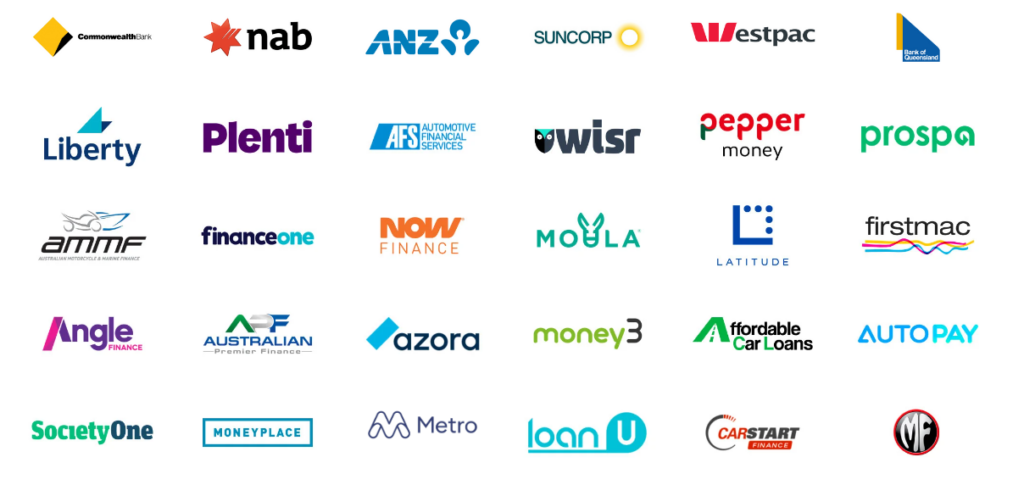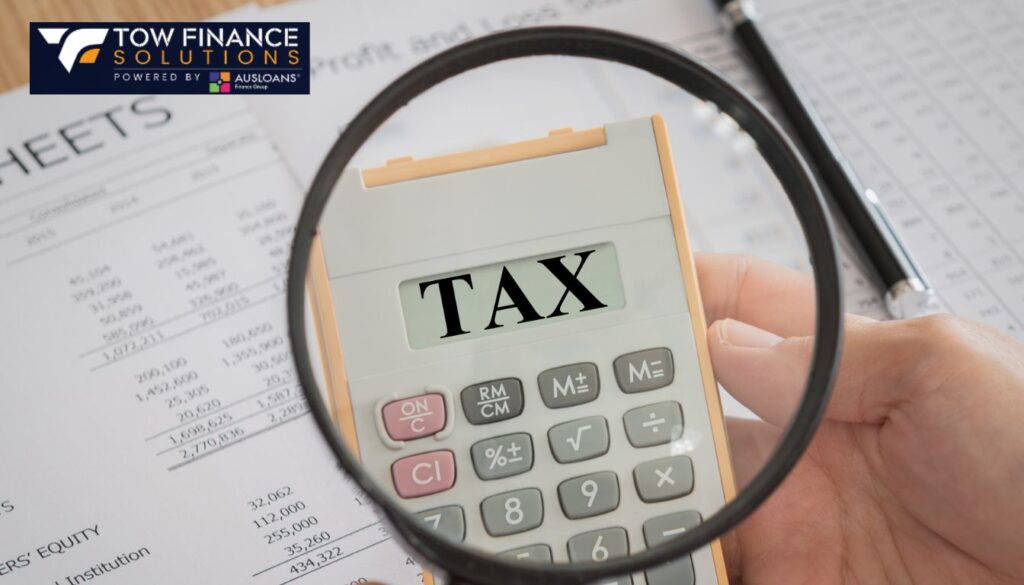Leisure Finance Repayment Strategies Explained
May 31, 2025
Are you looking to fund your dream vacation or purchase a recreational vehicle? Tow Finance Solutions, serving all around Australia, can help you achieve your leisure goals with tailored finance options.
Leisure finance is a specialized financial service designed to help individuals fund activities and purchases that enhance their lifestyle and personal enjoyment. When you take out a leisure loan, understanding your repayment options is crucial for maintaining financial stability.
Effective repayment strategies can make a significant difference in your overall financial position. By structuring your repayments to align with your financial circumstances and lifestyle needs, you can enjoy your leisure assets without undue financial stress.
Key Takeaways
- Understand your leisure finance options to make informed decisions.
- Choose a repayment strategy that aligns with your financial situation.
- Consider the impact of different repayment approaches on your financial position.
- Leisure loan repayments can be structured to suit your lifestyle needs.
- Maintaining financial stability is crucial when financing leisure assets.
Find The Best Deal

With over 10 years of industry experience we are a leading independent broker with a diverse panel of 40 + lenders to find you the best solution, tailored to you and your goals!
Understanding Leisure Finance in Australia
The financial flexibility offered by leisure finance is revolutionizing the way Australians enjoy their leisure time. Leisure finance provides the means to pursue passions and experiences without the immediate financial burden, making it an attractive option for those looking to enhance their lifestyle.
What Is Leisure Finance?
Leisure finance encompasses various financial products designed specifically for funding recreational assets and activities. It differs from other types of personal lending in its focus on leisure pursuits, offering tailored loan structures and terms that suit the unique needs of Australians seeking to finance their leisure activities.
Common Uses for Leisure Finance
Leisure finance is commonly used for purchasing recreational vehicles such as boats, caravans, and jet skis. It allows individuals to spread the cost over time, making these luxury items more accessible. The table below outlines some common leisure finance applications and their typical loan terms.
Leisure Asset | Typical Loan Term | Average Loan Amount |
Boat | 5-7 years | $20,000 – $50,000 |
Caravan | 5-10 years | $15,000 – $40,000 |
Jet Ski | 3-5 years | $8,000 – $15,000 |
The Current Landscape of Leisure Finance in Australia
The current state of leisure finance in Australia is influenced by various economic conditions. As you explore your options for financing leisure activities, understanding the current market is crucial.
Market Trends and Interest Rates
Current interest rate trends for leisure finance products are crucial to understand when making informed borrowing decisions. Lenders are adjusting their rates in response to market conditions, and comparing these rates can help you save on interest costs. The Reserve Bank of Australia’s decisions on interest rates significantly impact the leisure finance sector.
How Inflation Impacts Leisure Borrowing
Inflation affects both the cost of leisure activities and your ability to repay loans. As prices rise, the purchasing power of your money decreases, making it essential to consider inflation when planning your leisure finance. Understanding how inflation impacts leisure borrowing can help you make more effective financial decisions.
Types of Leisure Finance Products Available
Leisure finance in Australia offers a range of products tailored to different needs. You can choose from various options to fund your leisure activities, whether it’s a holiday, a boat, or a caravan.
Personal Loans for Leisure Purposes
Personal loans are a popular choice for financing leisure activities. They’re unsecured, meaning you don’t need to provide collateral, and can be used for a variety of purposes, including funding a dream vacation or purchasing leisure equipment.
Secured Leisure Loans
Secured leisure loans allow you to borrow money by using your leisure asset as security. This can lead to more favourable interest rates and higher borrowing capacity. For instance, you can use your caravan as collateral to secure a loan for upgrading it.
Specialized Recreational Vehicle Finance
Specialized recreational vehicle finance is designed for specific leisure assets like boats, caravans, and motorhomes. These finance options understand the unique needs of recreational vehicle owners and offer tailored loan structures.
Understanding these leisure finance products can help you make an informed decision about which loan best suits your needs. Whether you’re looking for flexibility, competitive interest rates, or specific loan features, there’s a leisure finance product available for you.
Determining Your Borrowing Capacity
Determining how much you can borrow is a key step in the leisure finance process. Your borrowing capacity is influenced by various factors, including your financial circumstances and the lender’s policies.
Factors Affecting How Much You Can Borrow
Several factors impact your borrowing capacity for a leisure loan. These include your income, existing debts, credit score, and employment status. Lenders assess these factors differently, which is why you may receive varying loan amount offers from different providers.
Using Borrowing Calculators Effectively
Online borrowing calculators can provide an accurate estimate of your potential borrowing capacity. When using these tools, ensure you input accurate information about your financial situation and the leisure asset you’re financing. This will help you understand how much you can borrow and plan your budget accordingly.
Leisure Finance Repayment Strategies Explained

To manage your leisure finance effectively, it’s essential to explore the various repayment strategies available. Your choice of repayment strategy can significantly impact your financial position and flexibility.
Fixed vs. Variable Rate Repayments
Personal loans for leisure activities often come with fixed interest rates, resulting in steady monthly payments. This stability makes budgeting easier, especially for significant leisure expenses. On the other hand, variable rate loans can offer flexibility but may expose you to potential interest rate hikes.
Weekly, Fortnightly, or Monthly Payment Options
The frequency of your payments can affect the total interest paid over the loan term. Making weekly or fortnightly payments can reduce the principal amount faster, potentially lowering the total interest paid. This approach can also align with your income patterns, making budget management more manageable.
Balloon Payment Considerations
Balloon payments involve making smaller regular payments with a larger final payment. While this can reduce your regular financial burden, it’s crucial to plan for the balloon payment to avoid financial strain. Understanding the implications of balloon payments is vital to managing your leisure finance effectively.
Creating an Effective Repayment Plan
To enjoy your leisure purchase without financial stress, creating an effective repayment plan is essential. This involves understanding your financial situation and aligning your loan repayments accordingly.
Aligning Repayments with Your Budget
To align your leisure loan repayments with your budget, you need to analyze your income and expenses. Consider your regular outgoings and financial obligations to determine a comfortable repayment amount. Tow Finance Solutions provides tailored solutions to help you manage your loan repayments effectively.
- Assess your monthly income and expenses
- Identify areas for potential savings
- Determine a suitable repayment schedule
Building Buffers for Unexpected Expenses
It’s crucial to build a financial buffer into your repayment plan to accommodate unexpected expenses related to your leisure asset. This can help prevent debt accumulation and ensure you stay on track with your loan payments.
To make the most of your leisure finance, it’s essential to understand how to minimise interest costs. Reducing the interest on your leisure loan can lead to substantial savings over the loan’s term.
Making Additional Repayments
Making extra payments on your leisure loan can significantly reduce the total interest paid. Even small additional repayments can make a big difference. Check if your loan allows for extra repayments without penalties and structure these payments for maximum benefit.
Refinancing Options for Leisure Loans
Refinancing your leisure loan can be a viable strategy for reducing interest costs. Compare offers from different lenders to ensure you’re getting a better deal. Consider the loan’s rate and terms before deciding to refinance.
By implementing these strategies, you can save thousands of dollars over the life of your leisure finance. It’s about making informed decisions regarding your loan repayments.
Managing Repayments During Financial Challenges

Managing leisure finance repayments during financial hardship requires careful planning and communication with your lender. When unexpected changes in circumstances occur, it’s essential to understand your options for managing your loan repayments.
Hardship Programs and Options
Many lenders offer hardship programs to help borrowers manage their loan repayments during difficult times. These programs may include temporary repayment reductions or suspensions. To access these options, you’ll need to contact your lender and provide documentation of your financial circumstances.
Restructuring Your Loan Terms
Restructuring your loan terms can provide relief during financial challenges. This may involve extending the loan period, temporarily reducing payments, or negotiating interest-only periods. It’s crucial to understand the potential long-term implications of these changes to ensure they align with your financial situation.
Tax Considerations for Leisure Finance
When financing leisure assets, understanding the tax implications is crucial for optimizing your financial position. In Australia, the tax treatment of leisure finance depends on how the asset is used.
When Leisure Assets May Be Tax Deductible
Leisure assets may be tax deductible if used for income-producing purposes. For instance, if you use a financed boat for fishing charters, you may be able to claim a portion of the expenses. The Australian Taxation Office (ATO) distinguishes between personal and business use, so it’s essential to keep accurate records.
Record-Keeping Requirements
To claim tax deductions on leisure assets, you must maintain detailed records. This includes documents showing the asset’s purchase price, financing agreements, and records of business use. Keeping a logbook can help track business usage. For example, if you finance a caravan for both personal and business use, documenting the business use percentage is crucial for accurate tax claims.
Comparing Leisure Finance Providers
Finding the best leisure finance provider in Australia can be a daunting task without the right guidance. With over 40 lenders to choose from, our expertise as a leading independent broker can help you navigate the market and find a tailored solution that meets your goals.
What to Look for in a Lender
When selecting a leisure finance provider, consider their reputation, specialization in leisure finance, and lending criteria. A lender with experience in leisure finance can offer more suitable products and better understand your needs.
Understanding Fees and Charges
Leisure finance providers charge various fees, including establishment fees, ongoing fees, and early repayment penalties. Comparing these fees across lenders can help you identify the most cost-effective option and avoid unexpected costs.
The Importance of Customer Service
Good customer service is crucial when dealing with leisure finance providers. Look for lenders that offer responsive support and clear communication to ensure a smooth borrowing experience.
The Application Process with Tow Finance Solutions
Tow Finance Solutions simplifies the leisure finance application process for you. With a range of leisure finance options available, you can easily find a solution that suits your needs. To get started, it’s essential to understand what’s required for a successful application.
Required Documentation
To streamline your application, gather necessary documents, including proof of income, identification, and relevant financial information. Having these ready will expedite the process.
Step-by-Step Application Guide
Begin by exploring leisure finance options at Tow Finance Solutions. Then, submit your application with the required documents. Our team will review your application and guide you through the next steps, making it a straightforward process.
Approval Timeframes
Approval times vary based on the complexity of your application and the information provided. Typically, decisions are made within a few business days. Ensuring all documents are in order will help expedite the approval process.
For personalized assistance, contact Tow Finance Solutions today.
How Tow Finance Solutions Can Help You
Tow Finance Solutions is dedicated to providing you with personalized leisure finance options tailored to your needs. We understand that each individual’s leisure needs are unique, and we offer a variety of financing options to suit different budgets and preferences.
Our Expertise in Leisure Finance
Our team of experts has extensive experience in the leisure finance sector, ensuring that you receive the best loan options available. We work with a diverse panel of over 40 lenders to find competitive rates and terms tailored to your circumstances.
Tailored Solutions for Your Needs
We take a personalized approach to understand your goals and match you with appropriate financing options. Whether you prefer short-term or long-term financing, our flexible repayment plans make managing payments convenient and stress-free.
Contact Us for Personalized Advice
Our experts are available to provide ongoing support throughout the life of your leisure finance agreement. To find the best loan for your leisure activities, contact Tow Finance Solutions today by calling (07) 4410 3375 or emailing [email protected]. We serve clients all around Australia.
- Expert guidance in finding the most suitable leisure finance option
- Access to a wide range of lenders for competitive rates
- Ongoing support throughout your loan term
Conclusion
Effective leisure finance repayment strategies can help you enjoy your leisure activities without financial stress. By understanding your options and choosing a repayment plan that aligns with your financial circumstances and goals, you can make the most of your leisure finance loan.
Tow Finance Solutions can guide you in navigating leisure finance decisions, offering tailored solutions to suit your needs. With the right approach to repayments, you can enhance your lifestyle while maintaining financial stability. By considering the information provided and working with experienced professionals, you can make informed choices about your leisure finance, ensuring that it remains a valuable tool for accessing enjoyable experiences and assets without undue financial strain across Australia.
FAQ
What is the difference between a secured and unsecured leisure loan?
A secured loan requires you to provide an asset, such as a caravan or boat, as security against the loan, whereas an unsecured loan doesn’t require collateral. Secured loans often have lower interest rates, but you risk losing the asset if you default on the loan.
How do I determine the best repayment frequency for my leisure loan?
The repayment frequency depends on your income schedule and budget. You can choose from weekly, fortnightly, or monthly payments. More frequent payments can help reduce the total interest paid over the loan term.
Can I make extra repayments on my leisure loan?
Yes, making extra repayments can help reduce the loan term and total interest paid. Check with your lender to see if there are any fees associated with extra repayments.
What happens if I’m having trouble making my loan repayments?
If you’re experiencing financial hardship, contact your lender to discuss hardship programs or options for restructuring your loan terms. This can help you get back on track with your repayments.
Are there any tax benefits associated with leisure finance?
In some cases, leisure assets may be tax deductible if used for income-producing purposes. Consult with a tax professional to determine the tax implications of your leisure loan.
How long does it take to get approved for a leisure loan?
The approval timeframe varies depending on the lender and your individual circumstances. Some lenders, like Tow Finance Solutions, can provide quick approval decisions.
What documents are required for a leisure loan application?
Typically, you’ll need to provide identification, proof of income, and details about the asset you’re financing. The specific documents required may vary depending on the lender and your circumstances.







